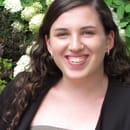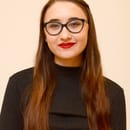When I applied for an internship through my town, I didn’t expect to get it. I also didn’t expect that a part of my job would be working at a summer camp for children who have special needs.
I started the internship in the office to set up for the camp. I was filing, copying, shredding and doing other things you would expect to do in an office job. But this wasn’t an ordinary internship.
Luckily, I had two other interns who would be joining me at the camp. We all expressed the same concerns and worries such as what would happen if one of the campers experienced an issue, or a “behavior” as we were taught to call it.
I had to go through the expected seizure training, EpiPen lessons and other preparations I would need to take care of my campers. Although all of this was important, there were much bigger lessons I took away from this camp.
When I finally got my age group assignment, it was kind of shocker. I was expecting to be assigned children, not campers who were ages 14-20. Some of them were older than me!
Although my nerves ate at me the first day, I adapted with my other recreational aides and group leader. They showed me as much as they could, but this job was more learn-as-you-go. When the day began, and I started to meet my campers, all my fears went away
Since I spent so much time with my campers, I got to know them as if we were friends. I also learned all their quirks. Luckily, they seemed to like me, and the summer flew by faster than I could have expected. Even though there were some rough days when campers exhibited “behaviors,” the mutual respect between campers and counselors made these times easier and everything was resolved quickly and smoothly.
As aforestated, I learned a lot over the summer. The other staff members taught me to say “these children have special needs” rather than defining and labeling each child by their disorder. These kids are more than just a diagnosis, which is why I quickly tried to adapt to this lesson.
I came to understand that many people don’t know how to treat people who have special needs or how to behave around them. I personally saw no issues between any campers or people who visited the park, but the awareness that something could have happened was still there.
I believe people need to understand the exact lesson my leaders taught me: that a diagnosis shouldn’t define a person’s life. Whether it be something like autism or even cancer, people should be allowed to live their lives the same way anyone else would.
My campers made this one of the most special summers of my life. I am forever grateful for the opportunity that was given to me. I would do it all over in a heartbeat.
Follow Her Campus @ Geneseo on Facebook, Twitter, Instagram, and Pinterest.



